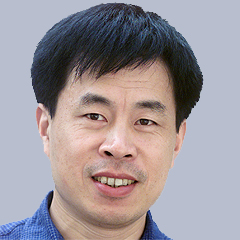

Follow us on:  
|

Latest
Attending a China-US Internet industry forum in Washington early this week, Lu Wei, the head of China’s State Internet Information Office, told a Chinese tale that dates back to 239 BC.
It is about a man who loses his axe, and suspects that his neighbor’s son has stolen it. So he watches his neighbor’s son closely and decides that his gait looks like that of a thief, his expression looks like that of a thief, and his voice sounds even more like a thief. In a word, everything about the boy looks like a thief.
But that feeling suddenly changes after he finally finds his axe while digging in his own backyard. He then looks at his neighbor’s son, and finds that he looks nothing like a thief any more.
![21 Asian nations sign up for the Asian Infrastructure Investment Bank during Beijing ceremony, but US allies were not present [Image: White House]](http://thebricspost.com/wp-content/uploads/2014/12/14145642557_a541c586ac_z.jpg)
21 Asian nations signed up for the Asian Infrastructure Investment Bank in October, but US allies were not present [Image: White House]
For example, the US has been accusing the Chinese government of the state-sponsored cyber theft of US corporate secrets, but so far it has failed to provide solid evidence and much of the accusation has been based on sheer speculation.
Yet what is known to the rest of the world is the US National Security Agency has been operating the world’s largest surveillance activities that steal information about not just foreign governments, world leaders, but also ordinary citizens, who have absolutely nothing to do with terrorism.
As a journalist covering Washington, I have found that such paranoia is deeply ingrained in the minds of many US politicians.
For example, at a press conference on Wednesday, the new US Under Secretary of the Treasury Nathan Sheets defended the US’ stance of not supporting the Asia Infrastructure Investment Bank and BRICS Bank, which both seek to invest in much needed infrastructure to boost global growth, especially in the developing world.
Yet the question is: Why does the US seem to have a position on the two banks before the two institutions have even been formally launched. Does that mean the US can foretell whether a child is going to grow up to become a scientist or thief when still in the womb?
Another example was at a hearing last month when NSA Director Michael Rogers, also head of the US Cyber Command, told the US House Select Intelligence Committee that China and one or two other countries were capable of launching cyberattacks that could shut down the power grid and other critical systems in parts of the US.
While it may be true that China and several other countries, including some US allies, have the capability, it does not mean any of them will actually use it.
It is clear that the US alone would have the capacity to paralyze the world’s Internet, not to mention the globally positioned surveillance. Should everyone in the world start to panic or accuse the US?
Also, the US has a stockpile of 7,500 nuclear weapons, more than enough to destroy the planet multiple times over. Again, should the rest of world panic or accuse the US? Maybe they should after the US recently decided to spend $1 trillion to upgrade its nuclear arsenal over the next three decades.
For these American politicians, every move China makes is seen with deep suspicion. And such deep suspicion, or paranoia, has already prevented the two countries from expanding cooperation in many areas to benefit the two nations and the world.
Former US secretary of state Henry Kissinger has warned about a self-fulfilling prophecy between China and the US if they continue to see each other as adversaries.
And this they will do if they continue to allow deep suspicions to prevent the two countries from coming together and narrowing their differences.
This article first appeared in China Daily.

Chen Weihua is a senior Chinese journalist and commentator based in Washington.

© 2017 BRICS Media Limited. All rights reserved. Registered in England and Wales. No.8133697. Registered office: Devonshire House 60 Goswell Road London, EC1M 7AD
57 founding members, many of them prominent US allies, will sign into creation the China-led Asian Infrastructure Investment Bank on Monday, the first major global financial instrument independent from the Bretton Woods system.
Representatives of the countries will meet in Beijing on Monday to sign an agreement of the bank, the Chinese Foreign Ministry said on Thursday. All the five BRICS countries are also joining the new infrastructure investment bank.
The agreement on the $100 billion AIIB will then have to be ratified by the parliaments of the founding members, Chinese Foreign Ministry spokesman Lu Kang said at a daily press briefing in Beijing.
The AIIB is also the first major multilateral development bank in a generation that provides an avenue for China to strengthen its presence in the world’s fastest-growing region.
The US and Japan have not applied for the membership in the AIIB.
